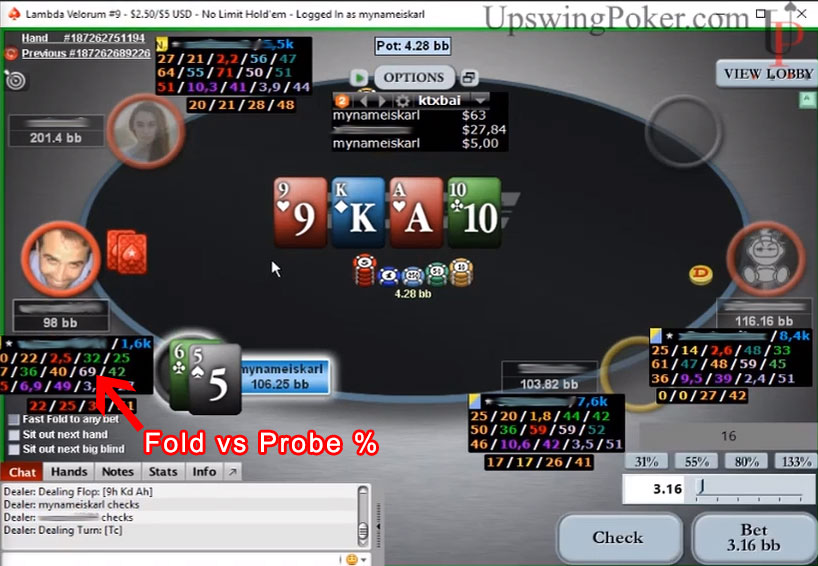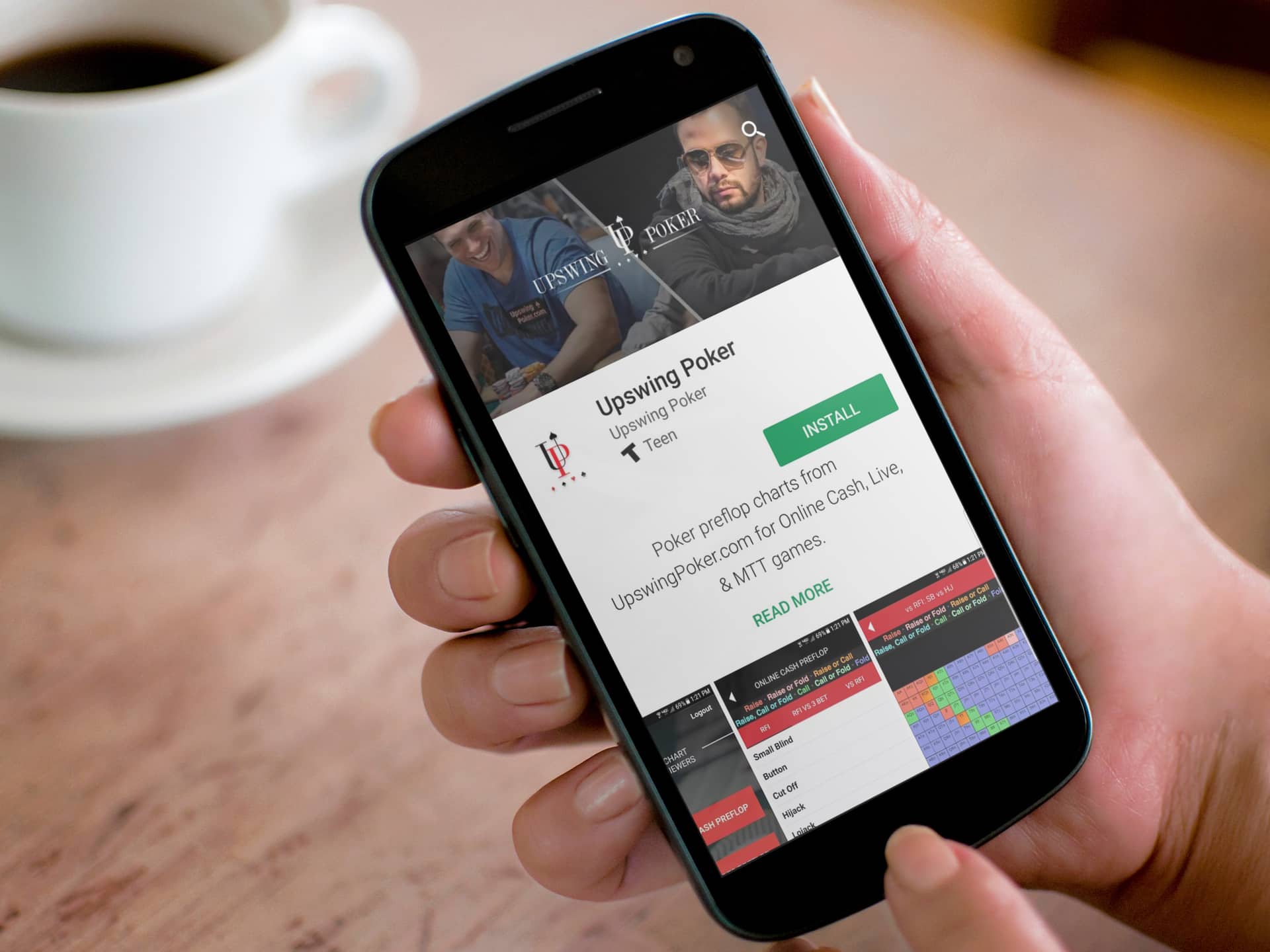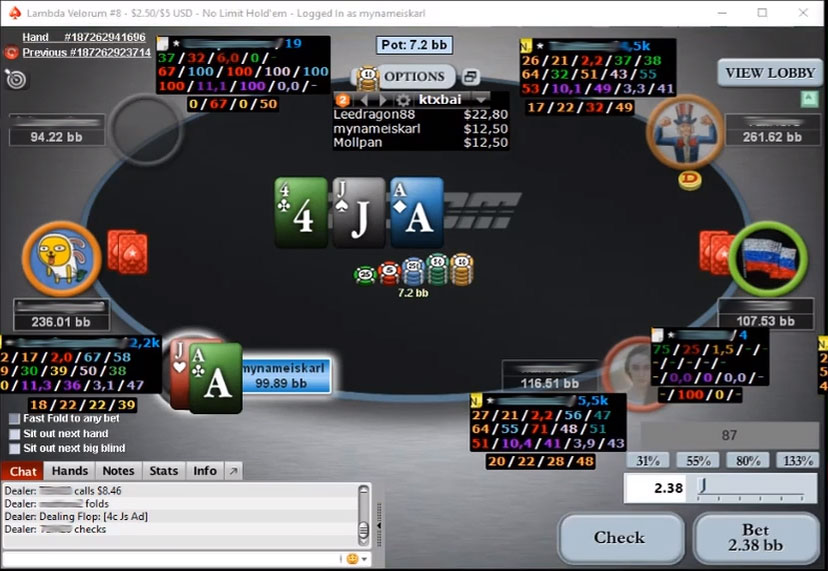18 июня 2012
Game Insight: Poker Online
Сергей Новиков
We get to watch a top online cash game player, Fried “mynameiskarl” Meulders, play some serious Indonesian Poker Online, and then we get to pick his brain afterward to further increase the edge we have on our opponents.
But even if you aren’t a Lab member, you’re in luck because you’re about to get valuable insights from one of Fried’s recent Play & Explain sessions.
These will help you play better in multiway pots, understand when it’s correct to bet for protection, and more.
For those of you who don’t know Fried, here are his results for 2018 playing mostly 500NL Zoom on PokerStars:

You’re in good hands
Let’s get started!
1. Don’t follow HUD stats blindly
One leak many inexperienced players have is over-relying on heads-up display (HUD) stats. Sure, a HUD is an extremely useful tool to gain an edge over your opponents. But HUD stats have their limits.
For example, during Fried’s session he encountered the following spot:

Fried called a min-raise from the big blind against a UTG open and the action checked through on the A-K-9 flop. This specific opponent folds to probe bets 69% of the time, as highlighted in the image above.
Even though this is an extremely exploitable frequency, it does not mean the UTG player folds 69% of the time on every board. If you think about this specific spot, the UTG player can have many hands that will call a turn probe, as he will naturally check back on the flop with a bunch of A-x and K-x hands. So, even if he normally builds his ranges poorly, in this specific spot he will naturally play pretty well.
In the end, for the reasons just explained, Fried decided to check and fold when the UTG player made a delayed c-bet.
The lesson here is to focus first and foremost on the specific spot, and then, when the decision is close, use the HUD to sway the decision one way or the other.
With extensive charts for online cash games, live cash games, and tournaments, you’ll be prepared with a winning baseline strategy no matter what game you play.

Lab members may also access the charts on the go with the Upswing Poker mobile app (for iPhone and Android).
2. Check a lot when out of position as the preflop raiser in multiway pots
When you open-raise, get a caller, and have to play out of position, you need to check a lot. This happens because the in position caller has a much tighter, stronger range.
In other words, even though you can have overpairs and sets, they represent a much smaller percentage of your range than your opponent’s. As Fried put it:
Your strong hands are part of an 18% range, while your opponent’s strong hands are part of a 4% range. This means that his range is much denser in strong hands.
This fact is accentuated when you get another caller, which is just what happened the next hand that Fried played. Here is the spot:

In this case, Fried noted that we should check with the stronger A-x hands in our range, such as AQ, even though it might be tempting to bet. With his specific hand (AJo), Fried opted to c-bet small (2.3BB into 7.2BB).
The lesson here is to check stronger hands than you are used to when playing out of position as the preflop raiser.
3. Play straightforward in multiway pots with weak players
Fried’s next insight came during the same hand. As you can see in the graphic above, the SB is tagged with a green color. That means he is a weak player.
Against weaker players, generally speaking, Fried notes that you should deviate from a GTO style by betting thinner for value with fewer bluffs. So, even if we check with the strong A-x against 2 good regs, we would need to bet for thin value with hands like AK, AQ, AT when the weaker player is in the pot.
Simply put, play A-B-C poker in pots with weak players.
4. It’s important to deny equity versus passive opponents
When an opponent has a polarized range, we should play a more binary strategy of calling and folding with very little raising. This is because such an opponent is likely to barrel the next street, which disincentives us from raising our strong hands. Raising with a strong hand would basically let his bluffs off the hook.


